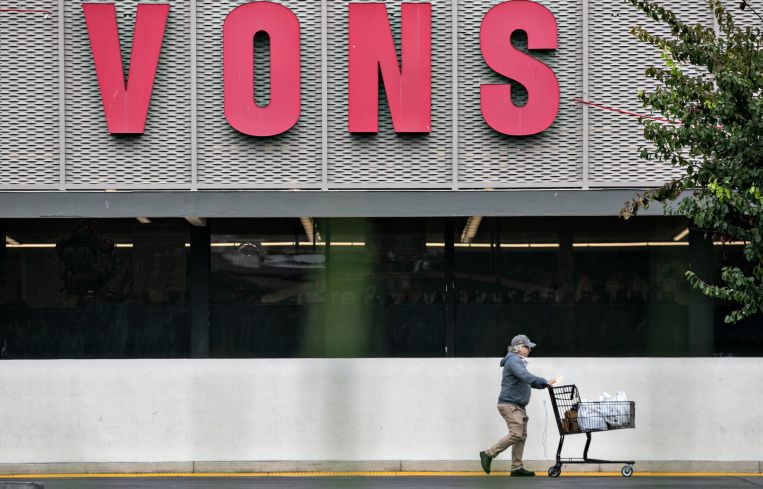The Real Estate at Stake in the Challenged Kroger-Albertsons Mega-Merger
FTC and 9 attorneys general object to $24.6B acquisition, saying it will create monopolistic advantages
By Greg Cornfield February 26, 2024 5:25 pm
reprints
The mega-merger between The Kroger Company and Albertsons Companies has a new hurdle to overcome in the combined force of the federal government and the chief attorneys of eight states, leaving the future of thousands of grocery stores and locations around the country in limbo.
The Federal Trade Commission, and the attorneys general from eight states and Washington, D.C., on Monday filed a lawsuit in federal court to block the massive $24.6 billion acquisition, arguing the deal would lead to lower wages for workers and higher prices for groceries. The regulatory agency’s complaint says the deal violates the Clayton Act, which prohibits the acquisition of assets that may substantially lessen competition or create a monopoly.
Kroger and Albertsons are already the two largest supermarket chains in the United States — trying to complete the biggest U.S. grocery merger in history — with nearly 5,000 stores across the country, including Ralphs, Pavilions, Safeway, Vons and Jewel-Osco, among others, as well as 4,000 retail pharmacies across 48 states.
The two supermarket companies have said they would invest $1.3 billion to improve Albertsons stores, $500 million to cut prices, and $1 billion to raise worker wages. Further, the companies would sell 413 stores to Piggly Wiggly chain owner C&S Wholesale Grocers in hopes of heading off these antitrust concerns. The FTC called that proposal inadequate, and described it as a “hodgepodge of unconnected stores, banners, brands, and other assets that Kroger’s antitrust lawyers have cobbled together and falls far short of mitigating the lost competition.”
California Attorney General Rob Bonta said the merger was a “rotten deal” for consumers and workers. Kroger and Albertsons have about 800 stores in the Golden State, and had proposed divesting 66 of them to C&S if the deal is completed.
“This megamerger is bad for workers, for agricultural producers, and for California communities,” Bonta said in a statement Monday. “In some markets in Southern California, Kroger-Albertsons is expected to be the only one-stop grocery option. … This merger will leave Californians with limited choices over where to shop — and, for workers in this industry, where to work. As many families continue to feel the burden of inflation, fighting corporate consolidation that threatens to increase prices and reduce service is more important than ever.”
Brian Schwalb, attorney general for Washington D.C., also said the merger would restrict residents’ access to food and other critical resources and “further consolidate an already hyper-concentrated market,” according to reports.
Though the effect of the complaint is uncertain, Albertsons’ stock appears unaffected, up 0.61 percent at the close of the stock market Monday, as the lawsuit was expected. Kroger’s share price, however, finished down almost 2 percent.
The grocery companies say the deal is needed to compete with Amazon, Walmart and Costco, and preventing the deal would hurt customers by strengthening those grocery-providing companies. In response to the complaint, a Kroger spokeswoman said the company has reduced prices every year since 2003 and will apply the same model to the combined company, according to reports. However, the company closed three stores in L.A. in 2021 rather than pay workers an additional $5 per hour in “hazard pay.”
Gregory Cornfield can be reached at gcornfield@commercialobserver.com.



